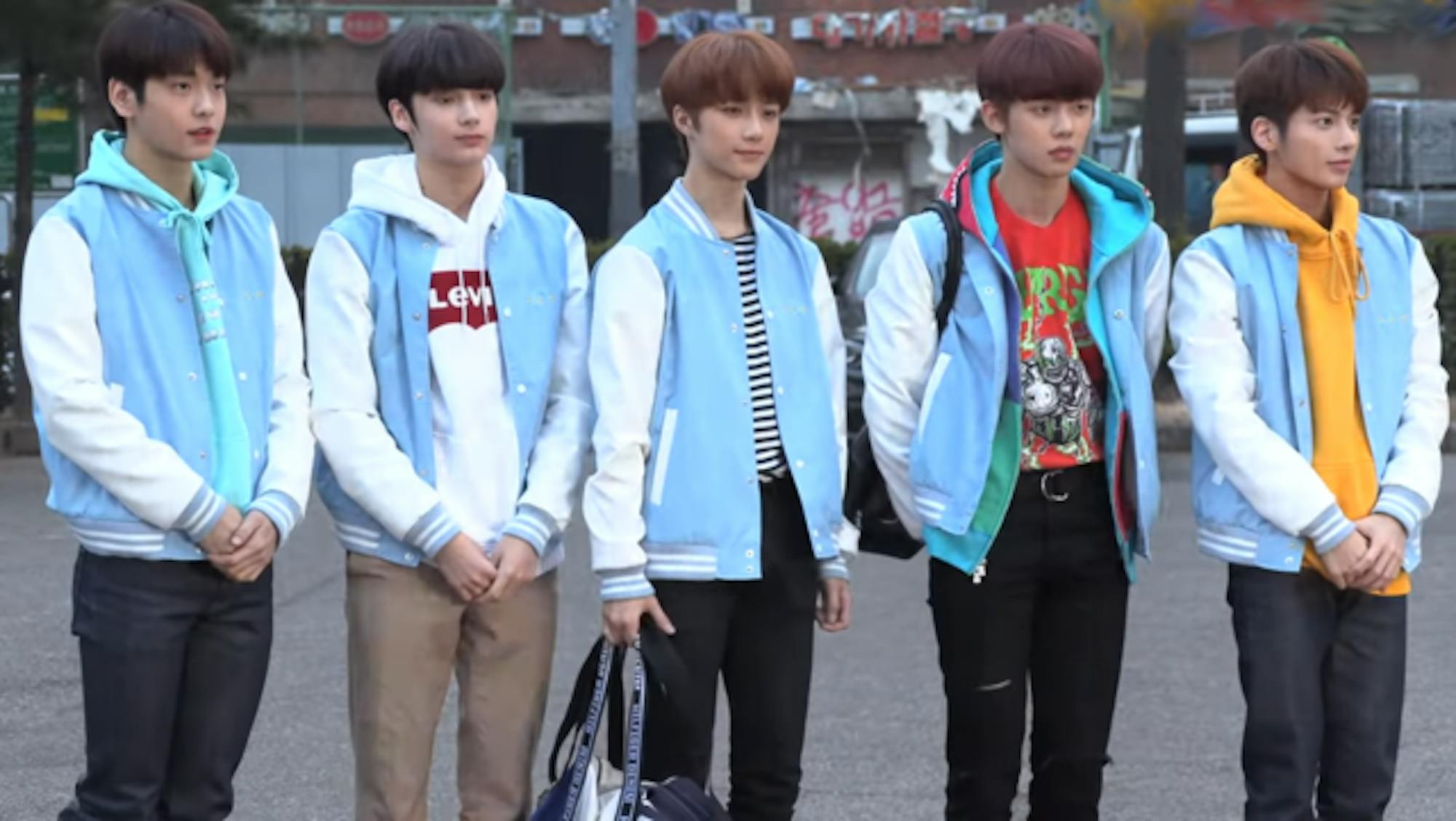On its newest EP, “The Name Chapter: Temptation,” K-pop band TOMORROW X TOGETHER explores “how you are seduced by the sweetness of instant gratification,” as member Choi Soobin describes it. While the band is not the only music group to approach this topic recently (see: the surreal parties of Taylor Swift’s “Lavender Haze” (2022) music video or Caroline Polachek fondling elaborate wine glasses in her “Billions” (2022) music video), TXT is uniquely qualified to speak on it.
TXT proudly identifies as storytellers of Gen Z, tying universal themes of desire and loneliness in contemporary contexts. With the outbreak of COVID-19 closely following its debut in 2019, TXT’s development as artists has been defined by coping with isolation and upheaval alongside the rest of their generation.
The group’s entire discography centers around a longing to leave behind the struggles of modern society as the members seek the transcendence of love. “In this world of zero/ I know you’re my one and only,” TXT sings on its 2021 single “0X1=Lovesong.” The relatability of the coming-of-age narrative the group presents takes on escapism that comes across as personal rather than preachy. In a 2021 interview with NME, TXT member Choi Yeonjun noted that fans who listen to the group’s discography “recognize these stories as stories of their own and sympathize with them.”
“The Name Chapter: Temptation” shows the band more “tempted” than ever by the idea of losing themselves in the pleasures of a “magic island” referenced throughout their discography and its accompanying imagery. But, whether listeners are versed in the band’s lore or unaware of it, they can appreciate the symbolism laden throughout “Temptation.” The EP’s visuals and lyrics allude to stories of temptation throughout history: Peter Pan, the Korean folktale “Chunhyangjyeon,” Genesis and Faust. With these literary inspirations and an immersive pop sound, the album highlights TXT’s strength of musical worldbuilding.
The EP opens with the cinematic track “Devil by the Window,” which features rhythmic whispered vocals over a bass beat that gives way to a dreamy chorus and the music matching the song’s fairytale-like story of being entranced by a devil. “I scream and shout, but no one’s ‘round/ There’s no way to escape,” the members sing, once again searching for comfort in a moment of isolation. A trippy outro to the song describes a flight into the sky, mimicking the journey of the Darling children flying out a window in the story of Peter Pan, which is even acted out as the members physically lift each other in the choreography for the song.
In the EP’s title track “Sugar Rush Ride,” desire overtakes the members. The dynamic track features a mimicking of the devil whistling and laughing and bursts of vocal ad libs, giving it an organic, ASMR-like intimacy. The payoff as the track builds into a full-on disco dance track at the end of the song is a sugar rush in its own right, drawing the listener further into the world of temptation alongside the members as they sing “You’re bad, you liar” before confessing “It’s me who’s bad.”
Track 3, “Happy Fools” (feat. Coi Leray), highlights the members’ voices; not only are their voices pushed to the front of the mix, but the song also has writing and producing credits from all five members. In playfully self-effacing lyrics, they strip the illusion of their untouchability as idols, describing themselves as “the laziest Superman.” The track provides a more down-to-earth presentation of temptation with the devil’s alluring whistles from “Sugar Rush Ride” turning into a casual trilling of a flute behind the members’ relaxed rapping. The song discusses living in the moment for better or worse: “There’s a lot of things to do/ But no plans to do them,” the members sing as they question ambition in a perfect procrastination anthem.
“Tinnitus (Wanna Be a Rock)” takes on a sound more commonly found in Afro-pop, the rhythm maintaining an appropriate sense of tension throughout the song. As the most vulnerable song on the album, it presents an existential crisis as the members discuss the loneliness and insecurities left after attempts to party, referencing their struggles with their roles as entertainers. Lyrics penned by member Kang Taehyun describe a desire for anonymity: “Rockstar minus the star/ Just a rock, okay?”
In the final song on the EP, “Farewell, Neverland,” the members resolve to leave behind a false paradise, “free falling” from their high as they decide to confront reality. Acknowledging that they will “be calling” to their love, Neverland, the closing track has a bittersweet complexity, nodding to the beauty of youthful joy rather than completely rejecting the happiness it represents. The production of this more balladic track keeps it balanced sonically with percussive guitar strums and haunting falsetto vocals lending texture to the song.
The conclusion of the EP provides closure not just on their journey through Neverland but on the obsessions TXT has become engrossed in throughout the narrative arc of their work. In an interview with J-14 magazine, member Huening Kai explained the significance of the EP being called a part of “The Name Chapter,” saying the EP “[solidified their] identity and name as [they] grow into adulthood.” Leaving behind the attitude of leaving “worries to the me of tomorrow” expressed in “Happy Fools,” the members of TXT instead choose to start to find their future selves, finding a sense of self that can’t be compromised by the promise of a sugar rush.






